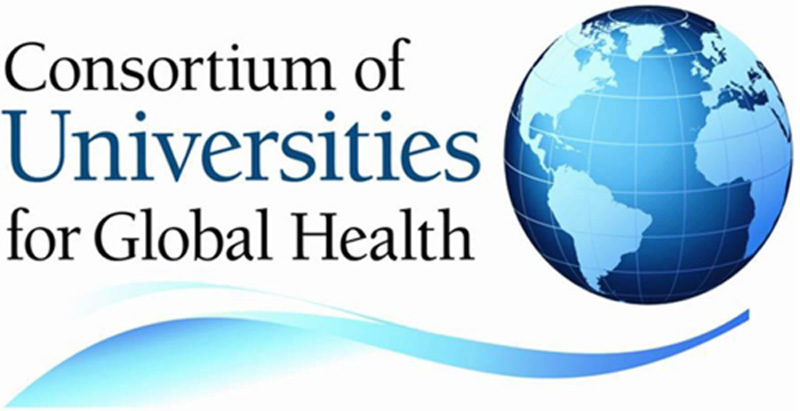
The CUGH Global Health Educators Community (GHECo = “gecko”) provides professional development and networking opportunities for professors who teach global health courses, design curricula and experiential learning activities for nonclinical undergraduate and graduate programs, and oversee baccalaureate majors and minors, academic master’s degrees, and research-based doctoral degrees.
GHECo is an international, multidisciplinary community of practice for global health educators that began hosting monthly Virtual Teachers’ Lounges (VTLs) and other events in September 2023. GHECo membership is free to everyone; CUGH membership is not required. To receive invitations to the monthly online GHECo meetings and special events, please sign up for the mailing list using the form at https://cugh.groups.io/g/gheco. Questions about GHECo may be directed to the founding co-chairs, Kathryn H. Jacobsen (University of Richmond) and Caryl E. Waggett (Allegheny College)
To receive invitations to the monthly GHECo meetings and special events, please create an account at https://cugh.groups.io/g/gheco. All global health educators are welcome to join the listserv and attend GHECo events. CUGH membership is not a requirement for participation in the community.
| Domain | Global Health Learning Objective |
| Values | Describe the history, values, and functions of global health. |
| Globalization | Explain how travel, trade, and other aspects of globalization contribute to health, disease, and health disparities. |
| Socioeconomics | Summarize the economic, social, cultural, and political contributors to individual and population health. |
| Environment | Examine the connections between human health and environmental health, including considerations of water, sanitation, air quality, urbanization, ecosystem health, and climate change |
| Ethics | Discuss the relationship between human rights and global health. |
| Healthcare Systems | Compare the financing and delivery of medical care in countries with different types of health systems and different income levels. |
| Governance | Examine the roles, responsibilities, and relationships of the agencies and organizations involved in prioritizing, financing, and implementing public health interventions locally and internationally. |
| Epidemiology | Compare the burden of disease, disability, and death from infectious diseases, reproductive health issues, malnutrition, noncommunicable diseases, mental health disorders, and injuries in countries with different income levels |
| Interventions | Identify evidence-based, cost-effective, sustainable interventions for promoting health and preventing illness across the lifespan from the prenatal period through older adulthood. |
| Evaluation | Evaluate policies that seek to solve major population health concerns and achieve health equity. |
| Domain | Planetary Health Learning Objective |
| Earth System Changes | Identify the natural and human-generated causes of altered biogeochemical flows, climate change, biodiversity loss, environmental pollutants, land-system change, freshwater change, ocean acidification, atmospheric aerosol loading, stratospheric ozone depletion, and other global environmental changes. |
| Ecological Systems | Describe how the ecosystems formed by human, domestic animal, wildlife, plant, and other biotic populations are affected by human actions across trophic levels, geographies, and time. |
| Human Health Outcomes | Explain how extreme temperature and precipitation events, reduced air and water quality, population displacement, and other global changes increase incidence, prevalence, and mortality from infectious diseases; malnutrition; respiratory, cardiovascular, and other noncommunicable diseases; sexual and reproductive health issues; psychosocial health disorders; and injuries. |
| Risk Assessment | Analyze how economic, social, cultural, political, environmental, technological, and health systems affect ecosystem and human vulnerability and resilience to environmental change. |
| Governance | Evaluate how local, national, and international laws and policies have contributed to environmental problems and solutions. |
| Actions | Compare the roles and responsibilities of governments, the commercial sector, civil society organizations, communities, and individuals in promoting conservation, restoration, mitigation, and adaptation related to environmental change |
| Ethics | Articulate the principles of intragenerational, interspecies, and intergenerational environmental justice. |
| Communication | Demonstrate environmental and health literacy by accessing, evaluating, and communicating reliable scientific information about global environmental change. |
